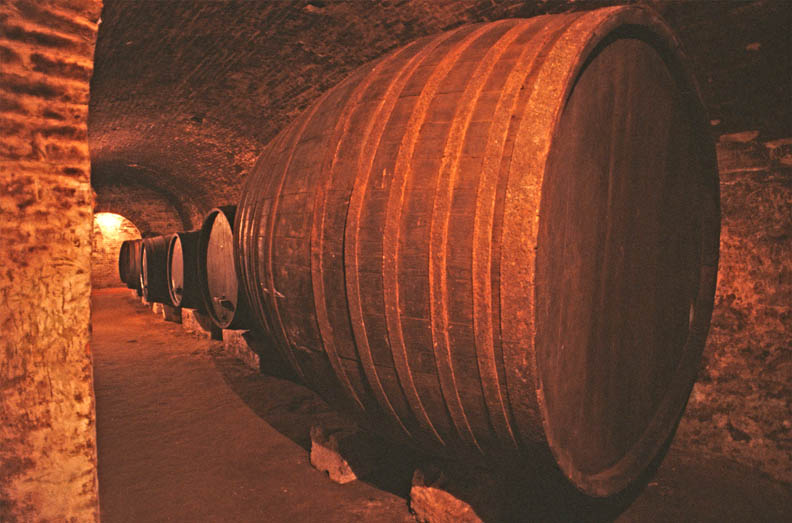May 17, 2013

Two research studies sponsored by Wine Institute indicate that the sustainable and eco-friendly attributes of wine are important considerations when making purchasing decisions among key segments of wine consumers as well as the wine trade. The research findings, presented at a Communicating Sustainability Workshop in San Francisco, indicate that eco-conscious wine consumers and the trade are interested in information about sustainable and environmentally friendly practices in wineries and vineyards.
For the consumer research, Wine Institute was a sponsor of the Natural Marketing Institute's 11th annual LOHAS (Lifestyles of Health and Sustainability) Consumer Trends Database, which quantifies the size of the consumer market for environmentally and socially responsible products and specifically segmented adult wine consumers. Among the key findings were that 34% of wine consumers across all segments of the survey consider environmental/sustainable attributes when making wine purchases. Also, 66% of these wine consumers said they identify the eco-friendly, sustainable attributes of wine at the point of purchase via labels and information on the shelf or in store. Of the LOHAS consumers – the greenest segment of consumers who describe themselves as active stewards of the environment and buyers of eco-friendly, socially responsible products – 43% reported purchasing wine in the past three months, higher than the general adult population, and 52% of LOHAS consider the environmental attributes of their wine selections compared to 34% of all wine consumers.
Wine Institute also partnered with PE INTERNATIONAL, Inc., a sustainability consulting firm, to conduct a phone/online survey of 59 trade respondents. Trade survey respondents included major retail and restaurant chains as well as distributor, regional and individual operations. Across all of trade segments, 37% said sustainable attributes were frequently or very frequently a factor in wine selection while 86% indicated that they were at least occasionally a factor in wine selection. Most respondents said they relied on winery marketing materials or testimony to identify wines with sustainable attributes, followed closely by third-party certification seals/statements and information on wine labels. Most respondents identified customer requests as well as their own personal and/or organizational values as reasons for selecting wines with sustainable attributes.
(See Wine skeptic takes on climate change report)
"Many consumers and the trade are showing interest in sustainably grown and produced wines," said Robert P. (Bobby) Koch, President and CEO of Wine Institute. "With 1,800 California winegrape growers and winemakers participating in the California Sustainable Winegrowing Alliance (CSWA) program, representing more than 70 percent of the state's wine acreage and case production, it's clear that we are committed to sustainable practices."
"Consumers with sustainable lifestyles are significantly more likely to drink wine, according to the LOHAS research," said Allison Jordan, Executive Director of the California Sustainable Winegrowing Alliance. "As an industry, and as individual producers, we have an opportunity to communicate our sustainable practices to consumers in a meaningful way."
Speakers representing the wine trade at the Communicating Sustainability Workshop echoed the findings of the research. "Thirty percent of the wines we offer are sustainable, organic or biodynamic," said Emily Wines, MS, Director of Wines, Kimpton Hotels & Restaurants, speaking at the workshop. "Customers care about sustainability and they look to retailers and restaurateurs to do the research and make those wines available."
Putting a seal, logo or information about sustainable practices on the wine bottle was encouraged by all workshop trade speakers including Peter Granoff, MS, Ferry Plaza Wine Merchant, and Matthew Colling, CSW, Key Account Specialist with American Wines & Spirits. This sentiment is supported by the majority of respondents to the trade survey who indicated that sustainability certification programs are helpful (71%), as are seals on bottles (81%). The survey also revealed that Biodynamic (63%), USDA Organic (53%) and California Certified Sustainable Wine (CCSW-Certified) (49%) are the certifications most frequently associated with wines offered by the trade responding to the survey.
A summary of the trade and consumer surveys sponsored by Wine Institute can be downloaded here.
As the fourth largest wine producer worldwide, California is a global leader in sustainable winegrowing practices. Through participation in the California Sustainable Winegrowing Program, the state has one of the most widely adopted sustainable winegrowing programs in the world in terms of wine acreage and case production. Certified California Sustainable Winegrowing and other statewide and regional programs such as Bay Area Green Business Program, Fish Friendly Farming, Lodi Rules, Napa Green and Sustainability in Practice (SIP) play an important role in the California wine community's efforts to produce high quality wine that is environmentally sound, socially equitable and economically feasible. To learn more, visit: www.discovercaliforniawines.com/sustainable-winegrowing.
More from Western Farm Press
Supreme Court stuffs seed patents back in Pandora’s box
Photos: Ageless veterans soar once again
Agricultural pioneers battling water scarcity
Wine skeptic takes on climate change report
Honey bee decline all about colony stress
7 big questions for the farm bill debate
You May Also Like




